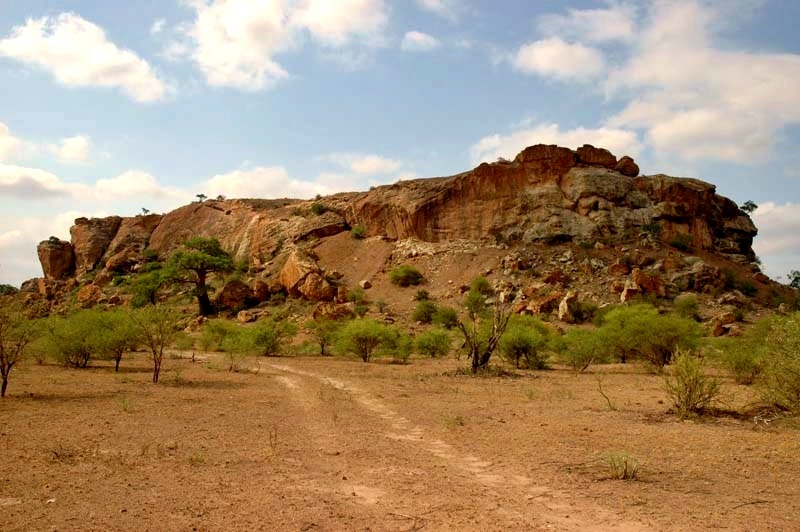Coined by explorer and researcher Dan Buettner, ‘Blue Zones’ are five regions across the globe that are virtually free of disease and sickness, and as a result, are home to people who routinely live to the age of 100 and beyond. Now, despite populations with long lifespans existing in Africa, the continent has been excluded from conversations of Blue Zones, until recently, with the Vhembe (Venda) district municipality potentially being South Africa’s very own ‘Blue Zone’.
Vhembe: Meet South Africa’s Blue Zone
Okinawa, Japan, and Nicoya Peninsula, Costa Rica are considered to house the highest number of centenarians – individuals living past 100. However, according to a census, as reported by News24, Vhembe houses more people over the age of 100 than anywhere else in South Africa, with the majority living in the Thulamela local municipality.
In fact, with 1226 centenarians residing in the Vhembe district municipality and 503 living in the Thulamela local municipality, there’s a lot we can learn from South Africa’s Venda centenarians.
1. Stay active
While she’s 101 and does occasionally need assistance from a carer, Tshisaphungo Maria Ndzeru admitted to News24 that she still enjoys doing simple tasks like washing and dressing herself in the morning.
For Nyawasedza Nematomboni, who recently turned 100 in June, she told News24 that the first thing she does when she wakes up in the morning is to get active,
“I wake up and walk around,” she says.
Consider that exercise is one of the pillars of the Blue Zones, and is routinely found to have longevity-boosting benefits, such as reducing one’s risk of an early death across all causes by up to 40%. Thus, it’s imperative that you not let your age keep you from being active.
2. Build a strong community
At 101 years old, Ndzeru’s home is anything but empty as she revealed that she stays with her youngest daughter, 54-year-old Molly Nnzeru, her great-granddaughter, Murendeni, as well as Murendeni’s two brothers.
It’s not uncommon for homes in Ndzeru’s neighborhood to be filled with various family members, as community is fundamental to both African cultures and Blue Zones, whether it’s stokvels or family communal living arrangements.
As loneliness can be detrimental to health, contributing to over 871,000 deaths annually, a healthy social circle and strong community environment can literally save your life.
Not only can it reduce stress, but healthy social connections can improve cardiovascular health and strengthen your immune system.
Whether it’s joining a book club, birdwatching, or a knitting club, making new connections is vital to living longer.
3. Healthy indigenous eating
Eating habits are central to living longer, and it certainly helps if these foods are unprocessed and organic.
Revealing to News24 the dietary preferences of the Vhembe people, Chief Livhuwani Matsila, the traditional leader of the Matsila people, emphasized how organic and indigenous foods have always been the preference in Venda.
“Our forefathers had a lot of cattle and other animals. But meat was not something that you would eat as often as we do nowadays. It was consumed on special occasions. It would mainly be vegetables and some indigenous chicken.”
With the Venda traditional diet being largely plant-based, it shares similarities with the Mediterranean diet, which has been considered one of the healthiest diets in the world and is often associated with a longer lifespan. So, whether you’re eating Venda or Mediterranean, cutting back on meat and sugar and increasing fruits, vegetables and legumes is really what we should all be striving for.
4. Spiritual connections
Religion and spirituality are common tenets in the Blue Zone, and in some areas, such as the Seventh-day Adventist Church in Loma Linda, it’s central to their identity.
For the Venda people, however, their spirituality is exactly how they’ve lived for so long,
“It’s God that has made me live this long,” says Tshikhakhisa Mamashia Magoro, aged 105.
In addition to providing community through church, religion, and spirituality can also offer a sense of purpose and reduce stress. In fact, one study revealed that religion can lower rates of depression and improve immune function.
5. Embrace nature
Nature has become an integral part of the day-to-day life of the Venda people. Whether it’s providing nourishment, relieving stress or even fighting ailments, the greener is definitely the better.
“If you have a problem or stress at home, you can go outside to the bush and meditate,” says local African traditional healer Dr. Mashudu Dima, adding that the outdoors is the perfect medicine for the Venda people.
“If you can spend five days in the jungle or forest you can be healed mostly without medicine.”
Want to know more?
Dementia is expected to affect 150 million people by 2050, a huge leap from the 50 million people who currently live with the condition. With that, author and explorer Dan Buettner may have found the secret to reducing dementia risk, and he discovered these secrets in the Blue Zone island of Ikaria.



![women [longevity live]](https://longevitylive.com/wp-content/uploads/2020/01/photo-of-women-walking-down-the-street-1116984-100x100.jpg)










